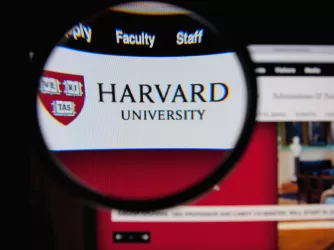Table of Contents
Speech Code of the Month: Richard Stockton College of New Jersey

FIRE announces the Speech Code of the Month for August 2005: Richard Stockton College of New Jersey. As a public institution, Richard Stockton is legally bound by the U.S. Constitution. Its anti-harassment policy, however, infringes upon protected speech and is particularly outrageous because it explicitly infringes upon the free exchange of ideas in the classroom.
Richard Stockton maintains a Student Policy Prohibiting Discrimination, Harassment or Hostile Environments in the Academic/Educational Environment. It is a violation of this policy “to use derogatory or demeaning slurs to refer to a person’s race, gender, age, religion, disability, affectational or sexual orientation, or ethnic background that have the effect of harassing a student or creating a hostile work environment.” The policy provides that it may constitute harassment to use “derogatory references regarding any of the above characteristics in any academic-related communication” or to display or distribute “material in the academic setting that contains language or images that are derogatory or demeaning, based upon any of the foregoing classifications.” Finally, the policy notes that “harassment or the creation of a hostile work environment can occur even if there was no intent on the part of an individual to harass or demean another” (emphasis added).
If the provisions of this policy look familiar, it is because the policy is based, almost word-for-word, on the Interim State of New Jersey Policy Prohibiting Discrimination, Harassment or Hostile Environments in the Workplace, the policy under which student-employee Jihad Daniel is currently being punished for expressing his religious beliefs at William Paterson University of New Jersey. Richard Stockton’s application of this policy to students in the classroom adds yet another dimension of repression to this already unconstitutional policy.
Since “derogatory” and “demeaning” are not defined, students are left to guess at what a fellow student or professor might find “derogatory” or “demeaning.” This is made worse by the fact that the policy does not require intent on the part of the “harasser,” and explicitly applies to classroom speech. In other words, students who express an opinion in the classroom that someone else interprets as derogatory or demeaning may be punished. One can imagine many legitimate classroom discussions in which this might happen, such as: a student in an American politics class who opposes affirmative action or gay marriage; a student in a women’s studies class who suggests that men are responsible for society’s ills; or a student in a religion class who expresses the opinion that religion is fantasy or escapism. The result of a policy like this is a terrible chilling effect on student speech in the classroom, stifling the free exchange of ideas that is so crucial to a liberal arts education.
This policy also allows students to be punished for conduct that someone else finds offensive, without requiring that the conduct be objectively offensive. By contrast, the U.S. Department of Education’s Office for Civil Rights, which oversees the enforcement of federal anti-harassment laws at educational institutions, stated in a letter to college and university administrators that “conduct [must] be evaluated from the perspective of a reasonable person in the alleged victim’s position….”
Although Richard Stockton’s policy is unconstitutional, the Constitution does not seem to be of much import to the State of New Jersey—after all, the Attorney General of New Jersey recently stated in a letter to FIRE that New Jersey’s workplace harassment policy trumps the First Amendment. New Jersey should be aware, however, that the courts would likely disagree with them: similar policies have been struck down as unconstitutional by federal courts in the Third Circuit, which includes New Jersey, Pennsylvania, and Delaware.
For these reasons, Richard Stockton College of New Jersey is our August 2005 Speech Code of the Month.
If you believe that your college or university should be a Speech Code of the Month, please email speechcodes@thefire.org with a link to the policy and a brief description of why you think attention should be drawn to this code.
Recent Articles
FIRE’s award-winning Newsdesk covers the free speech news you need to stay informed.

‘I hate freedom of opinion’ meme leads to sentencing in German court

Revoking Harvard’s tax-exempt status will threaten all nonprofits

Grandpa’s advice for the new wave of American censors
